How a water softener works
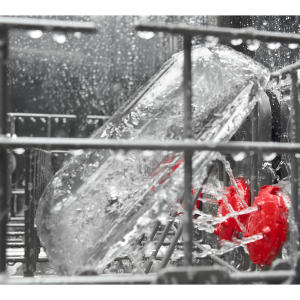

A common misconception about water softeners is that they add salt to hard water to soften it. While salt is used in the water softening process, it’s the removal of hard water minerals—not the addition of salt—that makes the water soft. Understanding how a water softener works can help you identify the cause of any problem that might occur.
A water softener has two operation cycles; the water softening cycle and the resin regeneration cycle.
Softening cycle
Hard water from the main water supply flows into the water softener, passing over resin beads located in the resin tank. The positively charged hard water minerals are attracted to the negatively charged resin beads, causing the hard water minerals to stick to the resin. The water leaving the water softener is now soft and ready to use.
Regeneration cycle
Over time the resin beads become coated with the hard water minerals and must be cleaned. The resin beads are washed by a strong salt water–or brine–solution. The sodium in the solution forces the hard water minerals to detach from the resin beads. These hard minerals are then flushed, and the resin is ready to collect the hard water minerals again.
Testing your water
Not sure whether your water softener is doing its job? This Sears PartsDirect video shows how to test your water. Also, check out our water softener DIY repair help page for step-by-step instructions in repairing your water softener.
Symptoms for water softeners
Choose a symptom to see related water softener repairs.
Main causes: faulty brine valve assembly, bad rotor valve…
Main causes: clogged drain hose, faulty rotor valve, leaky rotor valve seals…
Main causes: salt bridge inside the salt tank, bad timer, valve motor failure, faulty rotor valve, clogged venturi…
Main causes: loose water line connections, cracked water-carrying components, bad rotor valve seals…
Main causes: lack of electrical power, bad power transformer, faulty timer…
Main causes: empty salt tank, salt bridge, depleted resin, clogged or damaged venturi, broken rotor position switch, fai…
Main causes: broken resin tank screen, bad resin tank seals, cracked upper distributor in resin tank…
Main causes: broken water flow meter, faulty timer, water flow to softener is bypassed…
Repair guides for water softeners
These step-by-step repair guides will help you safely fix what’s broken on your water softener.
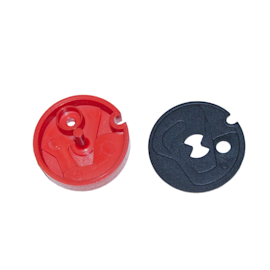
How to replace a water softener venturi
The venturi valve in your water softener draws brine water from the salt tank to the resin tank for regeneration. Follow…
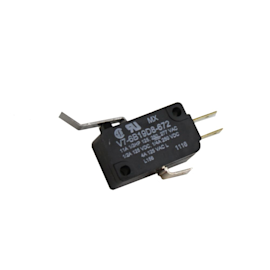
How to replace a water softener rotor position switch
The rotor position switch detects the position of the valve rotor. If the rotor position switch fails, follow these step…

How to replace a water softener timer
The timer is the control board you use to program the water softener. If the timer isn’t accepting commands when you pus…
Articles and videos for water softeners
Use the advice and tips in these articles and videos to get the most out of your water softener.

Learn about all the convenient features on our Sears PartsDirect website that make your parts purchases easier.…
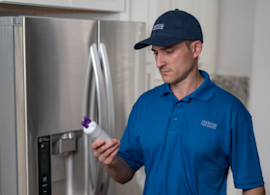
Get answers to frequently asked questions about Sears and Sears PartsDirect.…
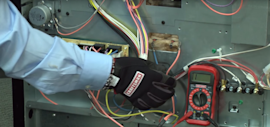
Learn how to use a multimeter to check for wiring problems in an appliance that's not working…
